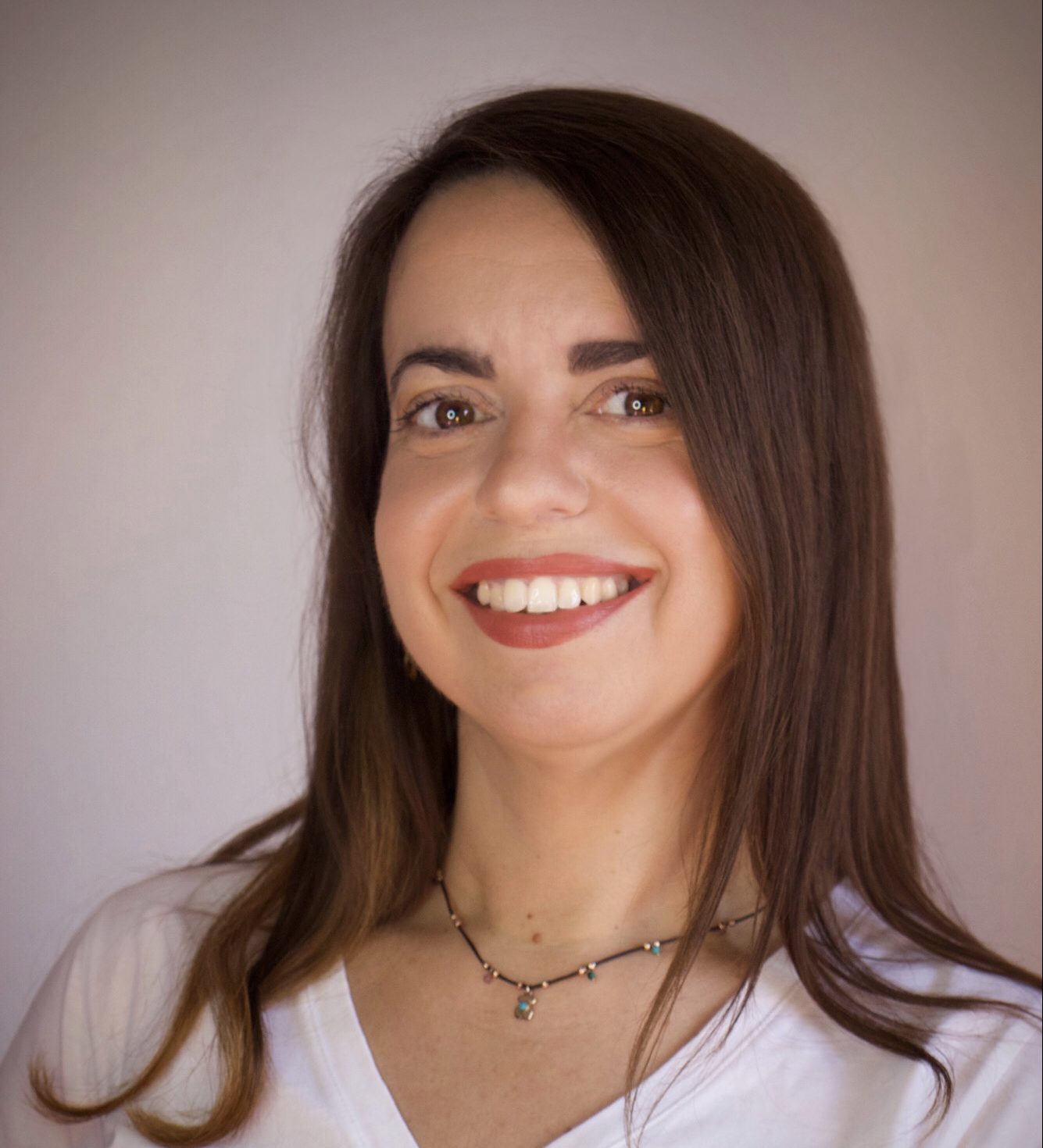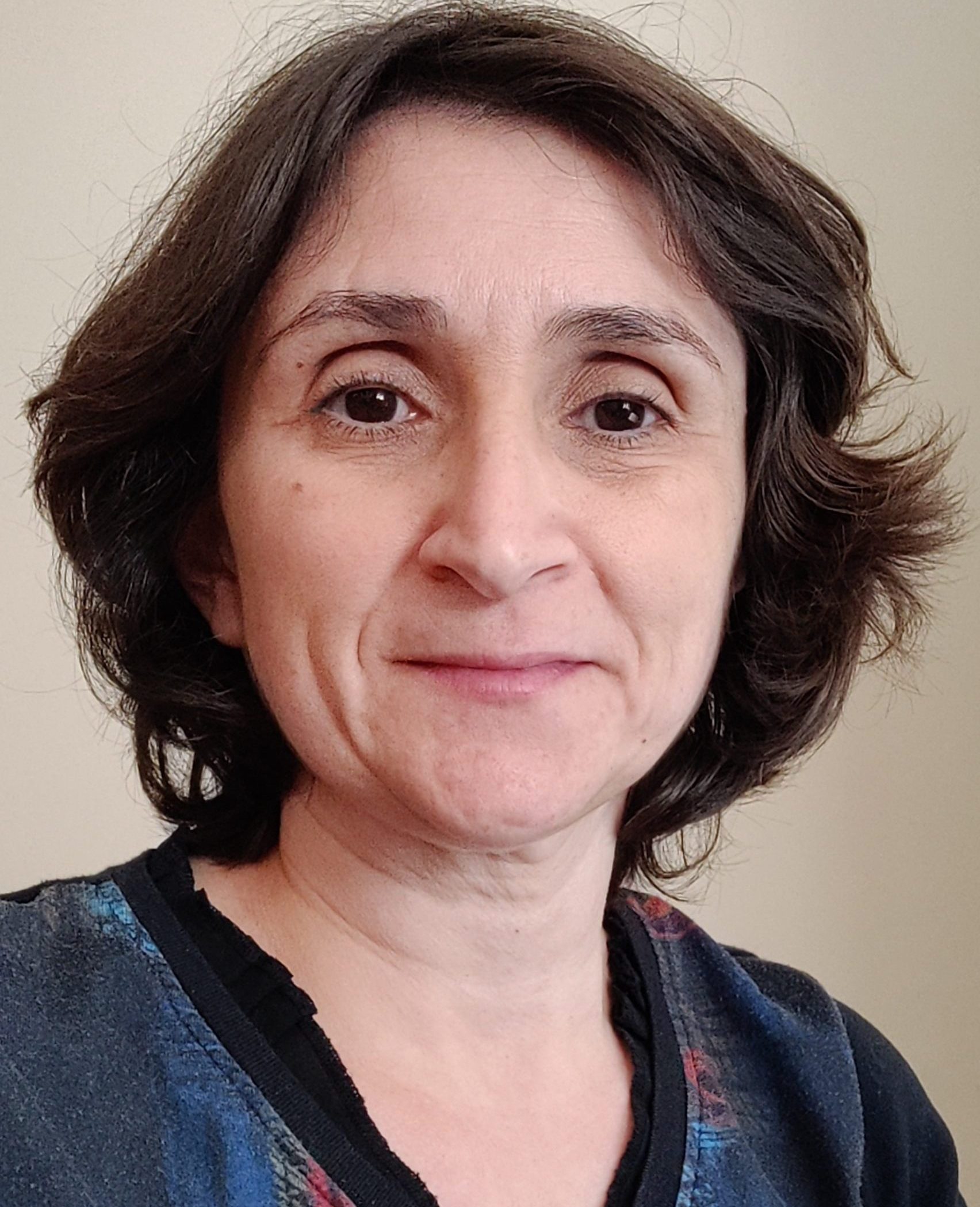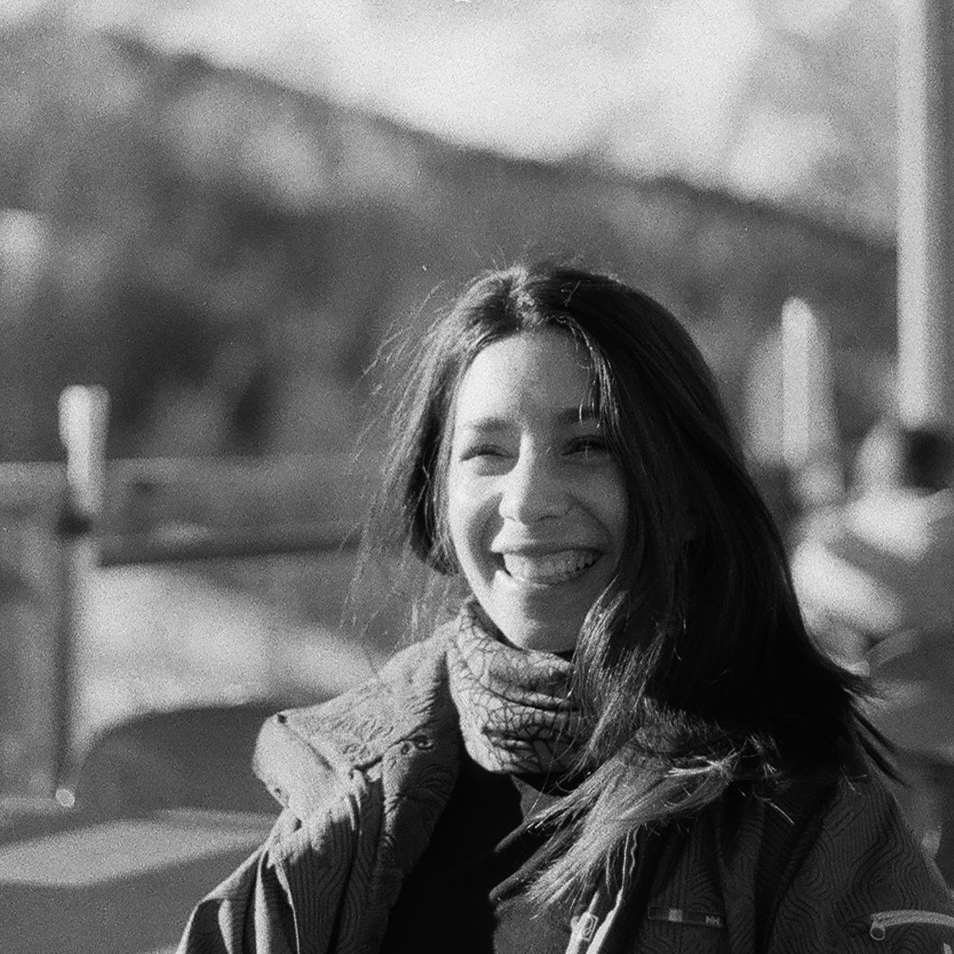Research Team
The members of the team are researchers or active collaborators of the Research Group on Reception and Translation Studies (CEAUL) with established expertise in the area of audiovisual translation and teaching. In line with our international partners’ instructions, their task will be to search and filter the video material from the Archives of the USC Shoah Foundation and use state-of-the-art tools and methods for the translation of the selected items as well as to create educational resources
 Zsófia Gombár (Principal Investigator)
Zsófia Gombár (Principal Investigator)
Zsófia Gombár was awarded her PhD on ’The Reception of British Literature under Dictatorships in Hungary and Portugal’ from the University of Aveiro. She is currently the head of the Research Group on Reception and Translation Studies at the University of Lisbon Centre for English Studies (ULICES). She is also the scientific coordinator (with Teresa Seruya and Maria Lin Moniz, CECC) of the project “Intercultural Literature in Portugal (1930-2000): A Critical Bibliography”(CECC/ULICES), and was the initiator and director of the Hungarian research project on censorship, The Reception of English-Language Literature in Hungary, 1945-1989 housed at the Savaria University Centre, ELTE, Szombathely. Her principal research area is censorship studies, history of translation as well as language and literature education in Hungary and Portugal. For more information, see: https://www.cienciavitae.pt/portal/en/581B-2FCF-7D1C
 Ana Raquel Fernandes
Ana Raquel Fernandes
Ana Raquel Fernandes is Lecturer in English at the Universidade Europeia, Lisbon and a full researcher at ULICES – University of Lisbon Centre for English Studies. Her research interests include the novel and the short story in contemporary British and Portuguese women’s writing. She is the author of What about the Rogue? (Honourable Mention ESSE Book Award 2012), she edited Narrative Strategies in the Reconstruction of History (2018) and she has co-edited, The Power of Form: Recycling Myths (2015), Storytelling: Memory, Love and Loss in Portuguese Short Fiction (2016) and Beyond Binaries: Sex, Sexualities, and Gender in the Lusophone World (2019), among other volumes. Dr Fernandes has also published a range of journal articles and book chapters on aspects of British and Portuguese contemporary fiction. Recently, she edited the special issue on ‘Writers of the Millennium: Trends and Challenges’ of the American, British and Canadian Studies journal (vol. 35: 2020). For more information, see: https://www.cienciavitae.pt/portal/9613-B94A-53B0.
 Catarina Xavier
Catarina Xavier
Catarina Xavier is a researcher with the Research Group on Reception and Translation Studies at the University of Lisbon Centre for English Studies. She holds a PhD in Translation, specialising in Audiovisual Translation. Her PhD focused on translation norms within the subtitling of taboo via data triangulation of corpus and survey analyses. Her current research looks into taboo language and the intersection between taboo and audiovisual translation and has published extensively on the subject. She is a member of the European Association for Studies in Screen Translation and the Asociación Ibérica de Estudios de Traducción e Interpretación. She is an invited member of the Merit Committee of ATAV – Associação Portuguesa de Tradutores Audiovisuais. For more information, see: https://www.cienciavitae.pt/portal/DF10-1B33-6FD8.
Cláudia Martins
Cláudia Martins is a professor at the Polytechnic Institute of Bragança since 2001, where she has been teaching English as a foreign language, English Linguistics, Terminology and Audiovisual Translation, among other courses. Presently, she is the director of the master in Translation. She holds a PhD in Translation by the University of Aveiro, with a thesis on museum accessibility for people with visually impairment, focusing on audiodescription and the role of audioguides (2015). Her previous training includes a diploma of advanced studies in Translation and Intercultural Studies (Universitat Rovira i Virgili, 2008), a master’s degree in Terminology and Translation and a bachelor’s degree in Modern Languages and Literatures, branch of English and Portuguese (both at the Faculty of Arts of the University of Porto, 2004 and 2000, respectively). Her academic interests encompass Linguistics, Terminology, Translation Studies, and Phraseology and Paremiology, although her main emphasis is on museum accessibility. For more information, see: https://orcid.org/0000-0002-3388-2340
 Hanna Pięta
Hanna Pięta
Hanna Pięta is assistant professor at NOVA School of Social Sciences and Humanities (Lisbon, Portugal), where she lectures on audiovisual, technical and scientific translation. She is also co-coordinator of the international research network IndirecTrans and member of the editorial team of the Translation Matters journal. Before taking up her current position, she was head of Research Group on Reception and Translation Studies (at the University of Lisbon Centre for English Studies). With research interests in indirect translation, bibliometrics, machine translation literacy and translator training, she has published in top journals in Translation Studies (Target, The Translator, Translation Studies). She has recently co-edited Indirect Translation: Theoretical, Methodological and Terminological Issues (Routledge 2019) and is now working on a co-authored textbook entitled Indirect Translation Explained (Routledge, forthcoming). For more information, see: https://novaresearch.unl.pt/en/persons/hanna-marta-pięta-cândido.
 Maria João Ferro
Maria João Ferro
Maria João Ferro is a senior lecturer at the Lisbon Accounting and Business School (ISCAL), a researcher with the Linguistics Research Centre of NOVA University Lisbon (CLUNL), a collaborator with the Research Group on Reception and Translation Studies at the University of Lisbon Centre for English Studies (ULICES), and a literary translator specialised in contemporary fiction. She holds a PhD in Linguistics (Lexicology, Lexicography and Terminology) from Universidade NOVA de Lisboa (UNL) and her research interests include Literary Translation, Technical Translation and Terminology, Languages for Specific Purposes, and the Economics of Language. For more information, see: https://orcid.org/0000-0001-8215-836X
 Susana Valdez
Susana Valdez
Susana Valdez is an Assistant Professor of Translation Studies at Leiden University (Netherlands), where she lectures on Translation Studies, Medical Translation, Technology and Subtitling.Her doctoral thesis (Summa Cum Laude, 2019), conducted in co-tutelle between Lisbon and Ghent universities, was on translation norms and expectations on biomedical translation employing a mixed methodology based on quantitative and qualitative product- and process-oriented approaches. Her interest in interdisciplinary, empirical, experimental and descriptive studies that address translators’ decision-making processes, and how these are influenced by the expectations of the community has developed into a broader research profile, including today reception-oriented studies on different text types and with various agents. She is also the co-head of the Research Group on Reception and Translation Studies at the University of Lisbon Centre for English Studies and a Reviews Editor of the Journal of Audiovisual Translation. Before taking up her current position, she was an invited lecturer at NOVA School of Social Sciences and Humanities and Lisbon University School of Arts and Humanities (Lisbon, Portugal), and had spent 15 years working in the translation industry. For more information, see: https://orcid.org/0000-0001-5461-2078
International Partners
 Andrea Szőnyi (USC Shoah Foundation)
Andrea Szőnyi (USC Shoah Foundation)
Andrea Szőnyi is the Head of Programs for International Education of the USC Shoah Foundation. She is also director of Hungarian educational NGO Zachor Foundation for Social Remembrance, which she founded in 2007. Szőnyi holds an MA in English and Russian Languages and Literature, and a Degree in Cultural Management from Eötvös Loránd University, Budapest. Her professional portfolio includes teaching English and Judaic Studies, educational programs in teaching and learning about the Holocaust and development of educational materials. She is an Imperial War Museum London Fellow in Holocaust Education. She is the author of several multimedia and digital, testimony-based educational materials and runs educational programs including professional development programs for teachers in Hungary and abroad. She is an expert member of the Education Working Group of the International Holocaust Remembrance Alliance (IHRA).
 Gabriella Komoly (Zachor Foundation)
Gabriella Komoly (Zachor Foundation)
Gabriella Komoly is a sociologist, she earned her master’s degree from the Central European University’s Nationalism studies program with a specialisation in Jewish Studies. She is currently the coordinator of educational and research programs at Zachor Foundation for Social Remembrance in Budapest, Hungary.
Teaching material developers and consultants
 Mónika Mezei (Berzsenyi Dániel Secondary School)
Mónika Mezei (Berzsenyi Dániel Secondary School)
Mónika Mezei teaches history and Latin language at Berzsenyi Dániel Secondary School, Budapest. She gained her MA and Ph.D degree at Eötvös Loránd University, Budapest. Besides teaching in the secondary school, she organizes various programmes on tolerance, combating antisemitism and social issues. In 2012, she took part in the programme „Teaching with Testimony in the 21st Century”, and she is the author of several educational materials. Since the beginning of 2014, she has been a consultant (as a USC Shoah Foundation Master Teacher and Ambassador) on multimedia lesson development in the ITeach programme, and leader of seminars for teachers on using multimedia education resources in Holocaust Education. As a teacher-researcher, she takes part in exploring the impact of multimedia materials in teaching.
Ildikó Barna (Eötvös Loránd University)
Ildikó Barna’s area of research is modern antisemitism, xenophobia, post-Holocaust studies, propaganda and quantitative research on archival sources as well as analysis of online hate speech using automated text analysis. She is also a renowned expert in evaluation. In the project she will advise on evaluation of testimony-based programs.
 Maria Luísa Ribeiro Godinho (Escola Secundária Quinta do Marquês, Oeiras)
Maria Luísa Ribeiro Godinho (Escola Secundária Quinta do Marquês, Oeiras)
Maria Luísa Ribeiro Godinho, History Teacher at Escola Secundária Quinta do Marquês, Oeiras. She holds a degree in History (FLUL) and a Master’s degree in Literature and Culture of Portuguese-Speaking African Countries (FCSH UNL). She has been a board member of Memoshoá (Holocaust Memory and Teaching Association) since 2015. She has attended national and international seminars within the scope of Holocaust study and teaching. She has developed several projects in her school within the study and teaching of the Holocaust, participated with papers in national and international conferences and provided training to teachers. She has participated in and/or co-organised teacher training sessions in association with the Directorate-General for Education, the Teacher Training Centre of the Municipality of Oeiras, the Shoah Memorial, TOLI (The Olga Lengyel Institute for Holocaust Studies of Human Rights) and Yad Vashem.
 Sandra Diogo Nogueira (Escola Secundária Quinta do Marquês, Oeiras)
Sandra Diogo Nogueira (Escola Secundária Quinta do Marquês, Oeiras)
Sandra Diogo Nogueira, Teacher of Informatics and Computer Science at Escola Secundária Quinta do Marquês, Oeiras. She has a degree in Informatics and Computer Science (with teaching qualifications) from the Universidade da Beira Interior (Covilhã) and a postgraduate degree in Technologies and Robotics in Basic Education from the Instituto da Educação da Universidade de Lisboa. She is also a trainer at the Centro de Formação de Escolas do Concelho de Oeiras (CFECO).
 Krisztina Bárdossy (Zachor Foundation)
Krisztina Bárdossy (Zachor Foundation)
Krisztina Bárdossy graduated from Budapest University of Technology and Economics in 2017, where she specialised in structural design. She also studied children’s book illustration and book editing at the school of design Corvin Art School, tutored by Kinga Rofusz. Currently, she is responsible for the layout and editorial design at the Hungarian Zachor Foundation and for the formatting of the educational material uploaded to USC IWitness. She has also been working as an architect and organising summer camps for children and has volunteered for Bagázs Nonprofit Organisation for several years. https://bagazs.org/volunteering/?lang=en
Research Assistants
Joana Casca, graduated in 2017 with a BA in Languages for International Relations from the School of Education of the Polytechnic Institute of Bragança. Currently, she attends the Masters in Translation at the same institution.

Leila Lacerda Baia, translator, student of the Master’s in Translation at the Polytechnic Institute of Bragança. She has a degree in Translation and Interpretation from Nove de Julho University of São Paulo.
